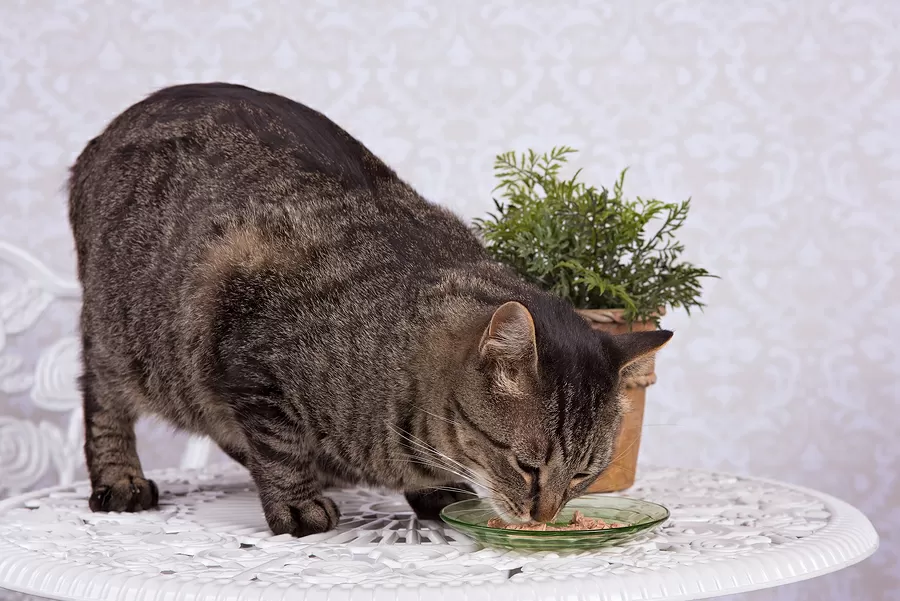Manx cats, known for their unique tailless appearance and playful nature, require a well-balanced diet to maintain their overall health. As a pet owner, understanding what Manx cats eat is essential for ensuring they receive the right nutrients to thrive. A proper diet enhances their coat health, supports strong muscles, and prevents common health issues.
Nutritional Needs of Manx Cats
Manx cats have specific dietary requirements similar to other felines. They are obligate carnivores, meaning their bodies are designed to thrive on animal-based proteins. Here are some key nutritional components they need:
- Protein-Rich Diet: Manx cats require high-quality animal protein from sources like chicken, turkey, fish, and beef. Protein is essential for muscle development, energy, and overall well-being.
- Healthy Fats: Essential fatty acids from fish oil, chicken fat, and flaxseed help maintain a shiny coat and support brain function.
- Taurine: This amino acid in meat is crucial for heart and eye health.
- Vitamins and Minerals: A balanced intake of vitamins like A, B, and D, along with minerals such as calcium and phosphorus, ensures optimal growth and immunity.
- Hydration: Proper hydration is vital, and wet cat food or access to fresh water helps prevent urinary tract issues.
Best Foods for Manx Cats
Selecting the right food ensures that your Manx cat remains healthy and active. The following options provide essential nutrients:
- High-Quality Dry Cat Food: Premium dry food contains balanced nutrients, supports dental health, and provides an easy feeding option.
- Wet Cat Food: Canned food contains higher moisture content, which helps maintain hydration and prevents kidney problems.
- Raw Diet: Some owners opt for a raw diet, which includes fresh meats, bones, and organs, mimicking a wild feline diet.
- Homemade Meals: When properly balanced, home-cooked food with lean meats, steamed vegetables, and healthy fats can be a great alternative.
What Manx Cats Should Not Eat
Certain foods are harmful and should be avoided to ensure your cat’s safety:
- Chocolate and Caffeine: Toxic to cats and can cause serious health issues.
- Onions and Garlic: These can lead to anaemia and digestive problems.
- Dairy Products: Many cats are lactose intolerant and may experience stomach upset.
- Grapes and Raisins: Known to cause kidney failure in felines.
- Raw Fish and Eggs can lead to bacterial infections and nutrient deficiencies.
Feeding Schedule for Manx Cats
Maintaining a proper feeding schedule is essential for a Manx cat’s well-being:
- Kittens (Up to 6 Months): Feed 4-5 small meals daily with high-protein kitten food.
- Adults (1-7 Years): Two meals daily with wet and dry food.
- Seniors (7+ Years): Adjust portions based on activity levels, including more wet food for hydration.
How to Choose the Best Commercial Cat Food
When buying commercial food, consider the following:
- Check the Ingredients: Ensure the first ingredient is real meat.
- Avoid Fillers: Avoid products with excessive grains, corn, or soy.
- Look for Essential Nutrients: Ensure taurine, omega fatty acids, and vitamins are included.
- Select Based on Age and Health: Choose a formula matching your cat’s life stage and specific dietary needs.
Homemade Food Recipe for Manx Cats
For those who prefer to prepare their cat’s meals at home, here is a simple and nutritious recipe:
Ingredients:
- 1 cup cooked chicken (shredded)
- 1/4 cup steamed carrots (mashed)
- 1/4 cup cooked pumpkin
- 1 teaspoon fish oil
- 1/4 cup chicken broth (unsalted)
Instructions:
- Mix all ingredients in a bowl.
- Serve in small portions and refrigerate leftovers.
- Ensure variety by rotating proteins and vegetables.
Signs of a Poor Diet in Manx Cats
If your Manx cat is not receiving adequate nutrition, you may notice these signs:
- Dull Coat and Shedding: A lack of essential fatty acids.
- Weight Gain or Loss: Imbalanced calorie intake.
- Lethargy: Low energy levels due to insufficient protein.
- Digestive Issues: Vomiting, diarrhoea, or constipation from improper food choices.
Conclusion
Understanding what Manx cats eat is crucial for their health and longevity. A balanced diet of high-quality proteins, healthy fats, and essential vitamins ensures they stay active and free from common health problems. Whether you choose commercial cat food, a raw diet, or homemade meals, providing the proper nutrients will help your feline companion lead a happy and healthy life. Always consult a veterinarian before significantly changing your cat’s diet. For more feline care tips.
Frequently Asked Questions
Can Manx cats eat human food?
Yes, but only safe options include cooked chicken, fish, and vegetables. Avoid toxic foods like onions and chocolate.
Should Manx cats eat wet or dry food?
A mix of both is ideal. Damp food provides hydration, while dry food helps with dental health.
Is a raw diet safe for Manx cats?
Raw diets can be beneficial but must be well-balanced and prepared safely to avoid bacterial contamination.
How often should I feed my Manx cat?
Kittens need frequent meals, while adults should have two meals per day.
Do Manx cats need special dietary care?
They require a protein-rich diet with proper hydration and essential nutrients to maintain optimal health.
